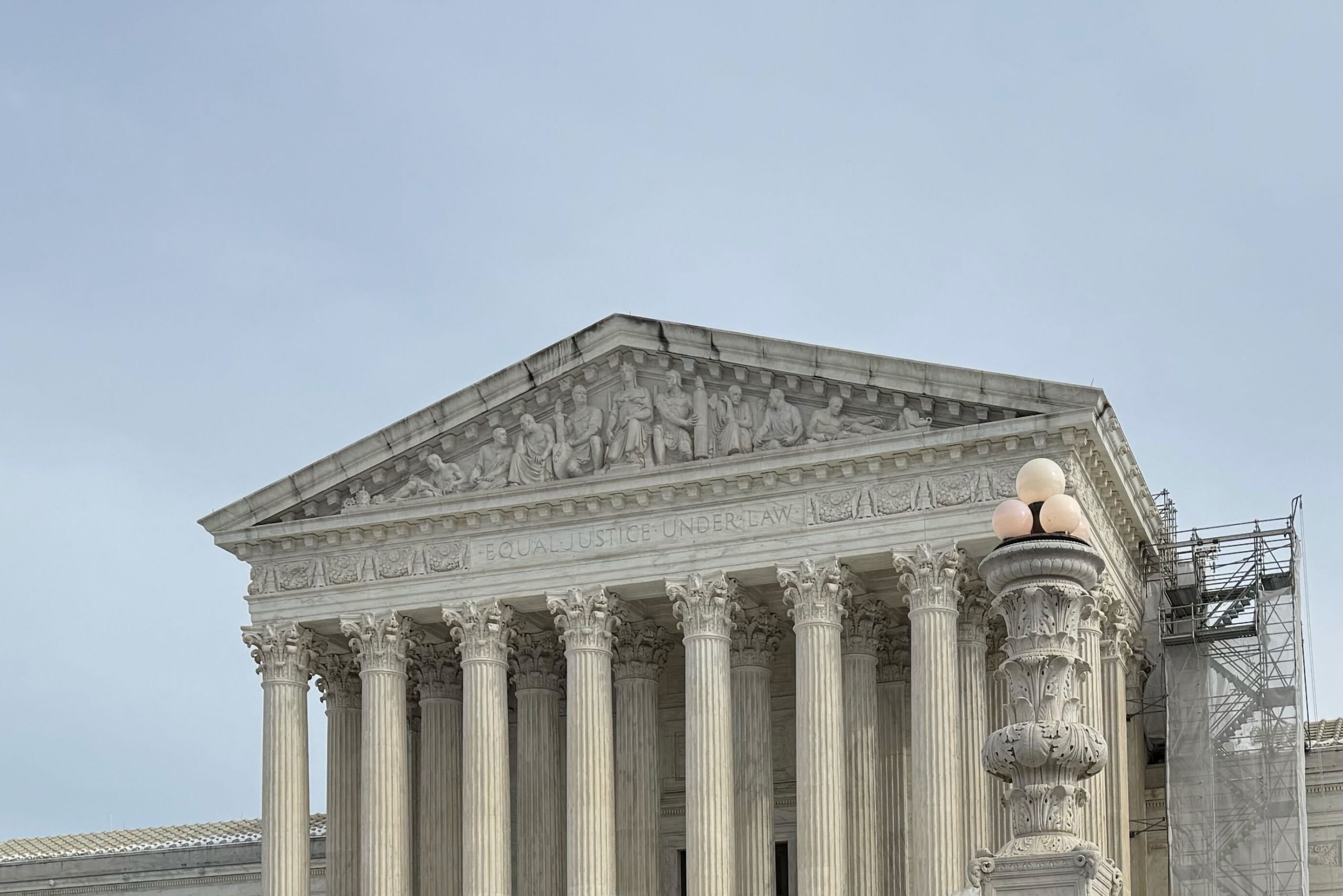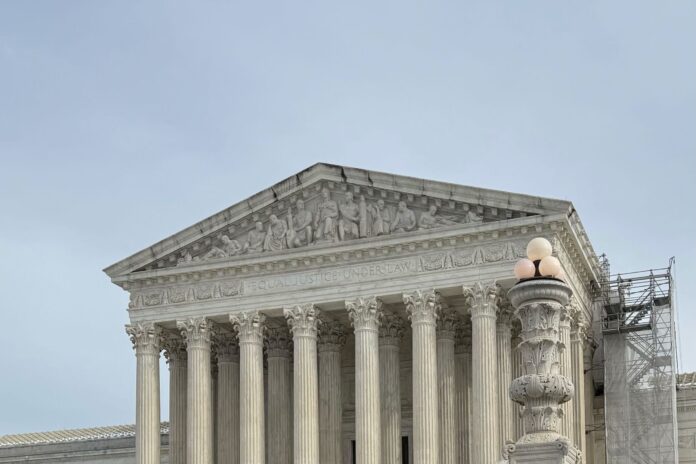EMERGENCY DOCKET
on Feb 21, 2025
at 6:54 pm

The court issued its decision in Bessent v. Dellinger on Friday evening. (Katie Barlow)
The Supreme Court on Friday left in place for now an order by a federal judge in Washington, D.C., that instructed President Donald Trump to temporarily reinstate the head of an independent federal agency tasked with protecting whistleblowers from retaliation. The justices did not act on a request from the Trump administration to block the order by U.S. District Judge Amy Berman Jackson, which had restored Hampton Dellinger as head of the Office of Special Counsel for 14 days, beginning on Feb. 12. Instead, the justices explained in a brief order, they put the government’s request on hold until Jackson’s order expires on Feb. 26.
Justice Neil Gorsuch, joined by Justice Samuel Alito, dissented from the court’s decision not to act on the Trump administration’s request.
Justices Sonia Sotomayor and Ketanji Brown Jackson indicated, without explanation, that they would have denied the government’s request.
Friday’s order was the first time that the Supreme Court has acted on a request from the Trump administration to intervene in one of the dozens of lawsuits filed to challenge actions taken by Trump and his administration since his inauguration on Jan. 20.
The Office of Special Counsel was created in the wake of the Watergate scandal and is intended to protect federal government employees from activities that are banned in the federal workforce, such as discrimination, improper hiring practices, and – in particular – retaliation. Under the federal law creating the agency, the president can only remove the head of the office, who serves a five-year term, for “inefficiency, neglect of duty, or malfeasance in office.â€
Hampton Dellinger was appointed to serve as the head of the Office of Special Counsel in 2024 by then-President Joe Biden. On Feb. 7, Dellinger was fired in an email that did not cite any reason for his removal.
Dellinger went to federal court to challenge his firing. On Feb. 12, Jackson issued a temporary restraining order that reinstated Dellinger for 14 days. Â
A federal appeals court in Washington, D.C., declined to intervene. It ruled on Feb. 15 that it lacked the power to review the Trump administration’s appeal because – unlike preliminary injunctions, which provide relief while litigation continues unless they are overturned – temporary restraining orders generally cannot be appealed.
Acting U.S. Solicitor General Sarah Harris came to the Supreme Court on Sunday night, asking the justices to step in. She argued that, as a general rule, the president can remove senior officials from office whenever he wants. That conclusion is reinforced, she contended, by recent decisions by the Supreme Court holding that restrictions on the president’s power to remove the heads of the Consumer Financial Protection Bureau and the Federal Housing Finance Agency violate the Constitution.
It does not matter, Harris added, that Jackson issued a temporary restraining order restoring Dellinger to office. A temporary restraining order like this one, Harris told the justices, can be reviewed now because it “deeply intrudes into the core concerns of the executive branch.â€
Harris noted that since the president’s inauguration in January, district courts have issued a variety of TROs blocking the president’s initiatives. If the Trump administration cannot appeal those TROs, she warned, “district courts are more likely to be enticed into issuing more aggressive TROs.†“Indeed,†she continued, under Dellinger’s theory, “a district court’s notorious injunction against the bombing of Cambodia during the Vietnam War would have been unreviewable had it simply been issued as a 28-day-long TRO.â€
Dellinger urged the justices to leave Jackson’s order in place. He cautioned that considering the government’s appeal would open the floodgates to more appeals from temporary restraining orders, creating a “rocket docket straight to this Court even as high-stakes emergency litigation†– such as the challenge to the freeze on funding for programs run by the U.S. Agency for International Development and an order by a federal judge in New York that bars members of the “Department of Government Efficiency†from accessing data at the Treasury Department – “proliferates across the country.â€
Moreover, Dellinger added, Jackson’s order simply leaves the status quo in place while “extremely expedited proceedings†to resolve the dispute move forward. Jackson could ultimately decide the case “in ways that avoid any need for this Court’s intervention (or at least create a proper record for it).â€
In a brief order, the court on the one hand noted the Trump administration’s concession that the Supreme Court “typically does not have appellate jurisdiction over†temporary restraining orders. On the other hand, it observed, Dellinger emphasized that the temporary restraining order “is set to expire on February 26,†when Jackson has scheduled a hearing on his motion for a preliminary injunction. Taking both of those factors into consideration, the court placed the government’s request on hold until Feb. 26.
In a three-page opinion, Gorsuch (joined by Alito) suggested that the court’s decision not to act on the government’s request at this time reflected “a concern that the TRO may not yet have ripened into an appealable order.†In Gorsuch’s view, however, it had. Gorsuch questioned whether Jackson had the power to order Dellinger’s reinstatement, because courts would not have had the power to do so in early U.S. history.
This article was originally published at Howe on the Court.Â





